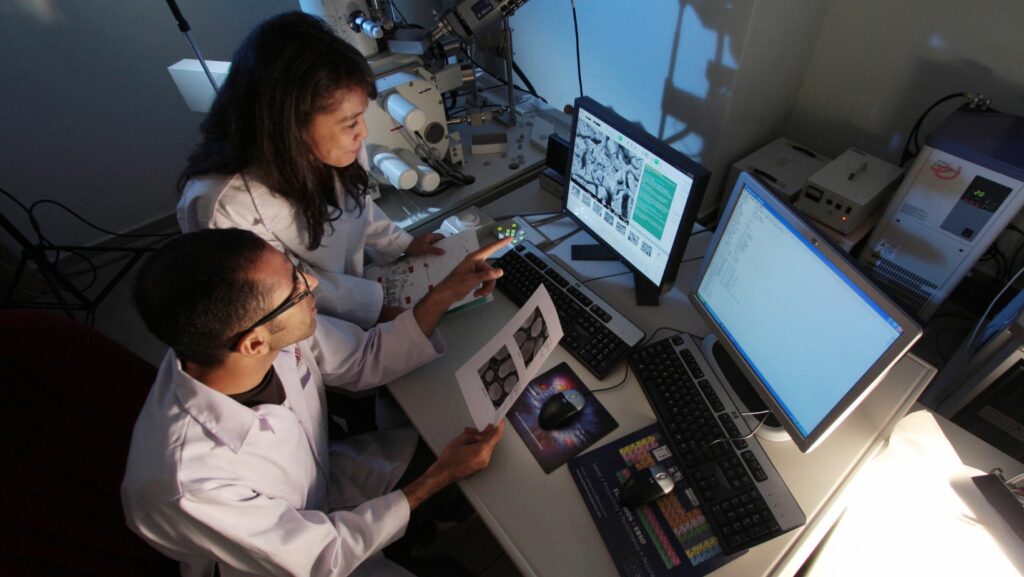Key Takeaways
- Interdisciplinary Skills: A Bachelor of Science in Industrial Design combines creative and technical skills, essential for effective product development and problem-solving.
- High Demand Careers: Graduates are well-positioned for roles in various industries, including consumer goods, automotive, and technology, due to the growing recognition of effective design.
- Focus on Sustainability: The program emphasizes eco-friendly design practices, preparing students to create environmentally responsible products and solutions.
- Hands-On Learning: Students engage in practical projects and learn industry-standard software, ensuring they are job-ready upon graduation.
- Diverse Career Paths: Graduates can pursue a variety of careers such as Product Designer, UX/UI Designer, and Design Researcher, showcasing the degree’s versatility.
- Networking Opportunities: Many programs facilitate connections with industry professionals, enhancing job prospects and career advancement for students.
Industrial design plays a crucial role in shaping the products that enhance everyday life. A Bachelor of Science in Industrial Design equips students with the skills to blend creativity with functionality, resulting in innovative solutions that meet consumer needs. This degree focuses on various aspects of design, from product development to user experience, preparing graduates for a dynamic career in a competitive field.
As industries evolve, the demand for skilled industrial designers continues to grow. This program not only fosters artistic abilities but also emphasizes technical knowledge and sustainable practices. Students learn to navigate the complexities of design while honing their problem-solving skills, making them valuable assets to any organization. Whether it’s creating ergonomic furniture or cutting-edge technology, a Bachelor of Science in Industrial Design opens doors to exciting opportunities in a rapidly changing world.
Bachelor Of Science In Industrial Design
 A Bachelor of Science in Industrial Design focuses on the intersection of creativity and technology. This program emphasizes a comprehensive curriculum that includes design theory, materials science, ergonomics, and sustainable practices. Students engage in hands-on projects that refine their artistic abilities and technical skills, preparing them for diverse roles in the industry.
A Bachelor of Science in Industrial Design focuses on the intersection of creativity and technology. This program emphasizes a comprehensive curriculum that includes design theory, materials science, ergonomics, and sustainable practices. Students engage in hands-on projects that refine their artistic abilities and technical skills, preparing them for diverse roles in the industry.
The coursework typically covers the following areas:
- Design Principles: Students learn the fundamentals of design aesthetics, color theory, and composition.
- Technical Skills: Essential skills in computer-aided design (CAD) software and prototyping technologies are developed.
- User Experience: Emphasis on user-centered design methodologies enhances product usability and accessibility.
- Sustainability: Curriculum often integrates eco-friendly design practices, addressing environmental concerns in product development.
Graduates of this program find opportunities in various industries, such as:
- Consumer Goods: Designing products ranging from household appliances to personal electronics.
- Automotive Design: Creating innovative solutions for vehicle interiors and exteriors.
- Furniture Design: Developing ergonomic and aesthetically pleasing furniture for residential and commercial spaces.
- Technology Development: Collaborating with engineers to design user-friendly technology interfaces.
The increasing demand for skilled industrial designers reflects the evolving nature of industries that prioritize innovative and sustainable design solutions. A Bachelor of Science in Industrial Design equips students with the knowledge and skills to make significant contributions across various sectors.
Curriculum Structure
 The Bachelor of Science in Industrial Design features a well-rounded curriculum designed to develop critical skills in design, technology, and sustainability. It includes core courses and elective options that provide students with specialized knowledge and practical experience. Core courses form the backbone of the industrial design program, ensuring students gain foundational knowledge in essential areas. These courses typically include:
The Bachelor of Science in Industrial Design features a well-rounded curriculum designed to develop critical skills in design, technology, and sustainability. It includes core courses and elective options that provide students with specialized knowledge and practical experience. Core courses form the backbone of the industrial design program, ensuring students gain foundational knowledge in essential areas. These courses typically include:
- Design Theory: Students learn principles of design, color theory, and visual communication.
- Materials Science: Education focuses on understanding materials used in product design, including properties and applications.
- Ergonomics: This coursework addresses user-centered design, considering human factors to enhance product usability.
- Sustainability: Instruction in sustainable design practices prepares students to create environmentally friendly products.
Elective Options
Electives allow students to customize their education and explore specific interests within industrial design. Options often encompass:
- Advanced CAD: Courses enhance skills in computer-aided design software for detailed product modeling.
- Interactive Design: Focus on creating user interfaces and experiences for digital products.
- Product Manufacturing: Instruction covers production processes and techniques relevant to bringing designs to market.
- Design Research: Exploration of research methodologies assists in understanding user needs and market trends.
These diverse offerings ensure graduates possess a comprehensive skill set adaptable to various industries.
Skills Developed in Industrial Design
Students in a Bachelor of Science in Industrial Design develop a diverse range of skills combining both technical proficiency and interpersonal abilities. These skills prepare graduates for successful careers in various industries.
Technical Skills
Graduates acquire essential technical skills through hands-on experience and specialized coursework. Key technical skills include:
- Proficiency in CAD Software: Students learn to create detailed digital models using software such as SolidWorks, AutoCAD, and Rhino.
- Understanding of Materials: An in-depth knowledge of different materials enables students to select appropriate options for product durability and sustainability.
- Ergonomics: Graduates understand human factors in design, ensuring that products are user-friendly and comfortable.
- 3D Prototyping: Skills in 3D printing and prototyping techniques help in turning ideas into tangible products for testing and refinement.
- Design Representation: Mastery of drawing and visualization techniques facilitates effective communication of design concepts to clients and stakeholders.
Soft Skills
Alongside technical abilities, industrial design students also cultivate vital soft skills that enhance teamwork and project management. Important soft skills include:
- Creative Problem-Solving: Graduates develop innovative solutions to complex design challenges, essential for product development.
- Communication: Effective verbal and written communication skills are vital for articulating design concepts and collaborating with clients and teams.
- Time Management: Students learn to prioritize tasks and manage deadlines, which is crucial in fast-paced design environments.
- Team Collaboration: Experience working on group projects fosters the ability to collaborate effectively with diverse teams.
- Adaptability: Graduates become adaptable thinkers, capable of responding to industry trends and changing project requirements.
These skills collectively prepare industrial design graduates to contribute effectively to various fields, enhancing product innovation and user experience.
Career Opportunities
A Bachelor of Science in Industrial Design opens numerous career paths, reflecting the increasing demand for design professionals. Graduates possess the skills and knowledge to excel in various roles across multiple sectors.
Job Roles
Industrial design graduates pursue diverse job roles, including:
- Product Designer: Develops consumer products, focusing on usability and aesthetics.
- UX/UI Designer: Enhances user experience and interfaces for digital products.
- Automotive Designer: Designs vehicle prototypes, balancing form and function.
- Furniture Designer: Creates innovative furniture solutions that prioritize ergonomics and style.
- Design Researcher: Conducts user research to inform design decisions and improve products.
These roles leverage the combination of technical skills and creative problem-solving that graduates acquire during their studies.
Industry Sectors
Industrial design professionals find opportunities in various industries, such as:
| Industry Sector | Description |
|---|---|
| Consumer Goods | Designs everyday products, enhancing usability and appeal. |
| Automotive | Innovates in vehicle design, improving functionality and aesthetics. |
| Furniture | Develops ergonomic and stylish furniture solutions that meet consumer needs. |
| Technology | Collaborates on product development for electronics and software interfaces. |
| Healthcare | Designs medical devices and equipment, focusing on user-centric solutions. |
This broad range of sectors highlights the versatility of the skills gained through a Bachelor of Science in Industrial Design, allowing graduates to thrive in an array of environments.
Benefits of Pursuing This Degree
Pursuing a Bachelor of Science in Industrial Design offers several key benefits that contribute to a successful career.
- Interdisciplinary Skill Set: Graduates acquire a blend of creative and technical skills essential for effective product development. This combination enhances problem-solving capabilities in real-world scenarios.
- High Demand: The increasing demand for industrial designers reflects a growing recognition of the role that thoughtful design plays in product success. Graduates often find numerous job opportunities across various sectors.
- Innovative Problem Solving: Students develop essential techniques for addressing complex design challenges. This skillset enables them to create innovative solutions that improve user experience and product functionality.
- Sustainability Focus: The curriculum emphasizes sustainable design practices. Graduates are equipped to contribute to environmentally responsible product development, a crucial aspect of modern design.
- Career Versatility: Industrial design graduates can pursue diverse career paths, such as Product Designer, UX/UI Designer, Automotive Designer, Furniture Designer, and Design Researcher. This versatility allows them to adapt to different industries, including consumer goods, healthcare, and technology.
- Hands-On Experience: The program includes practical projects that refine technical skills. Students learn to use industry-standard software and tools, ensuring they are job-ready upon graduation.
- Strong Professional Network: Many programs foster connections with industry professionals. Networking opportunities through internships and collaborations enhance job prospects and career advancement.
- Creative Expression: The degree allows for significant personal creativity. Graduates can express their design vision while meeting practical and market needs.
These benefits underscore the value of a Bachelor of Science in Industrial Design for individuals seeking a dynamic and fulfilling career.
A Bachelor of Science in Industrial Design offers a pathway to a rewarding career that combines creativity with technical expertise. Graduates are well-equipped to tackle the challenges of modern design, focusing on innovation and sustainability. As industries continue to evolve, the skills gained through this program position individuals to excel in various sectors.
With hands-on experience and a comprehensive understanding of design principles, graduates are ready to make a significant impact. The growing demand for skilled industrial designers highlights the importance of this degree in shaping the future of product development. Embracing this opportunity can lead to a fulfilling career that not only meets market needs but also fosters personal creativity and environmental responsibility.



